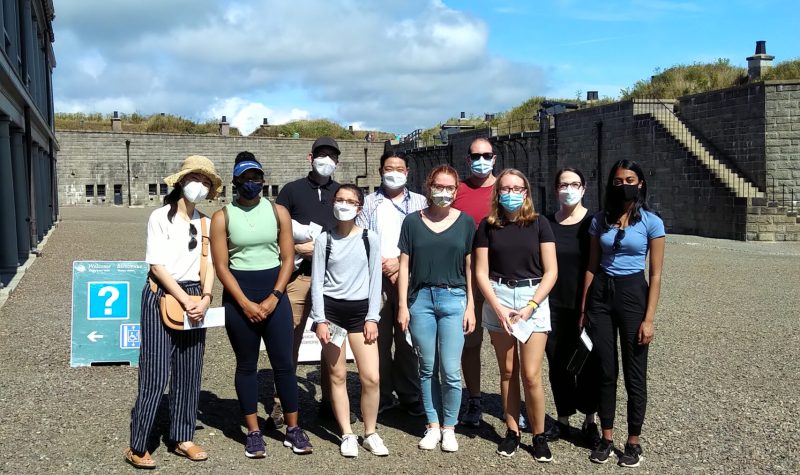The Breast Cancer Society of Canada is granting $250,000 in funding to the Department of Biochemistry and Molecular Biology, Faculty of Medicine at Dalhousie University, for a research project led by Dr. Paola Marignani. The goal of Marignani’s research is to identify unique markers associated with HER2+ breast cancer recurrence, and understand how the cancer returns.
The Breast Cancer Society of Canada was founded in 1991; this is the first year the organization is running a grant program, and Marignani is one of the first recipients.
Marignani said HER2+ is responsible for up to 30 per cent of breast cancers diagnosis, and that this project will be funded for the next three years under her supervision, with a team of post-doctoral fellows with a PhD in molecular biology.
“The aim of the Precision Oncology Program, also known as personalized medicine, is to provide more targeted therapies for patients. We know that there's a percentage of women that despite treatments and follow-up, sometimes the cancer returns. And so we're trying to understand at the molecular level, what are the proteins or genes involved, that allow or permit cancer to return."
HER2+ breast cancer is a type of breast cancer that tests positive for a protein called the human epidermal growth factor receptor.
“Every person has HER2+ in their body: we have it in our breast tissue, brain, heart, lungs. [Normally], it functions to keep things moving in our in our cells and to keep us alive, and is part of the big protein network of our body. But in HER2+ breast cancer, for whatever reason, there is too much of this protein. If there's too much of this protein, it's doing too much of its job. So everything is in overdrive as a result.”
If a person is diagnosed with HER2+ breast cancer, they are given a specific type of treatment called Herceptin.
“Herceptin is an antibody that prevents this protein from communicating to other proteins, and it shuts down the proliferation so we don't get a lot of cell division. What ends up happening is the tumour stops growing.”
Nova Scotia was one of the first provinces to pass Herceptin as a standard treatment of care, and so it is covered by health insurance. Another treatment would be resection, which is a surgical process of cutting out tissue or part of an organ.
Although this research is not the first of it’s kind, as many scientists have tried to discover the reason behind the recurring cancer, Marignani said her team is one of the few using the technology of Single-cell RNA-Sequence paired with artificial intelligence to achieve results.
“What we do is we feed all this information into a computer, and the computer starts identifying patterns and bits of information as we keep feeding the RNA-Sequence data into the computer for every type of cell or every type of breast cancer cell. Once we have this instruction manual or algorithm, we can then mine databases around the world.”
For the last 20 years, a lot of cancers have been sequenced and mined to determine the biomarker patterns consistent in positive breast cancer recurrence. Once that information is recorded, tools can be configured to stop the recurrence from happening, another separate project.
Marignani said there are many factors that could contribute to the recurrence of HER2+ but no scientist really knows for sure.
“Is there something about the machinery or the equipment within the cell that sustains the energy so that the tumour can come back—we're trying to figure out how to turn off the energy to a tumour. Another possible explanation could be epigenetic events. We know the environment does play a role in perhaps driving cancers to form, so it could be epigenetic. And of course, we have genetic elements. So we may inherit genes from our parents that are responsible for cancer to actually show up in the first place.”
These are the inherited forms of breast cancer, and other cancers.
“My own research team is trying to understand why this happens. There is no one answer to it, unfortunately.”
The short-term outcome of the research will allow scientists to provide their clinical counterparts with biomarker panels that will allow them to determine which of their patients will have their breast cancer return, and which patients will not, says Marignani.
“What this means is improving the quality of life for people living with breast cancer, because the long-term goal is to improve health and to improve quality of life, and in turn to improve the health of our community.”
In terms of challenges Marignani and her team faced, she said that while her research comes with many challenges, the biggest one was the pandemic, as it slowed research down and made it difficult for herself and her teams to do their jobs. Nevertheless, their health and safety were her top priority and she said they are excited to be working on this project.
Listen to the CKDU story below:


